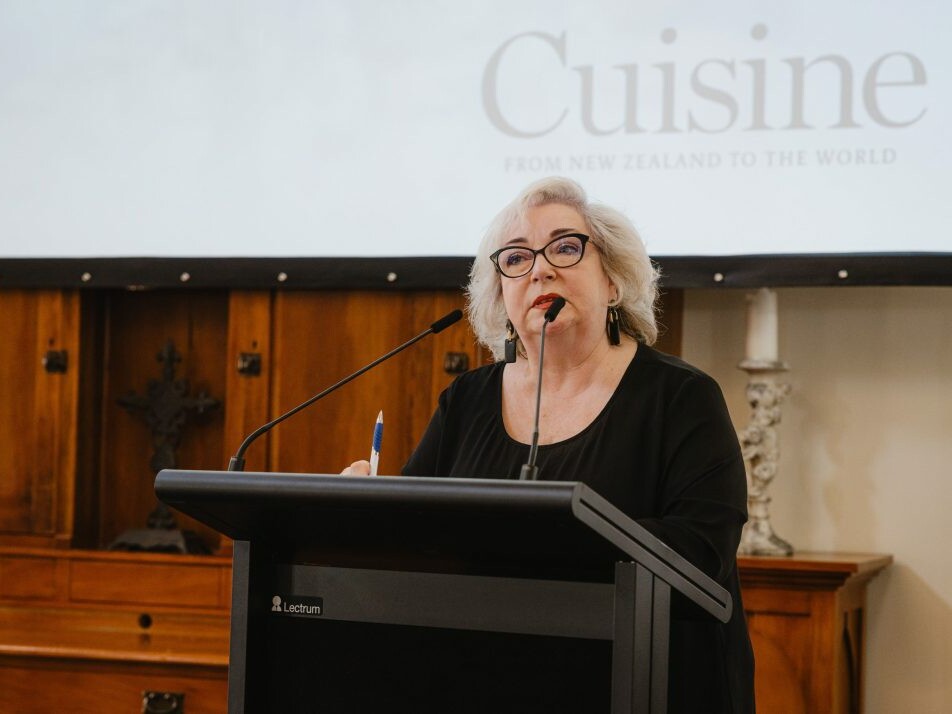On the face of it, women are thriving in hospitality but it’s a hard choice with much work still to be done, says Hillary Eaton.
“The straw that broke the camel’s back” – Arabic proverb. The dromedary’s humped spine is so overloaded with straw to get the job done that one final piece is what causes the otherwise able beast to give out for good. In this proverb, pieces of straw are both inconsequential and the ultimate cause of death; each piece of the final weight is guilty and guiltless; each straw is simultaneously part of the problem yet completely manageable, when considered in its near-weightless isolation. There have never been more women enrolled in culinary schools and hospitality programmes the world over than there are today, nor have there ever been as many women in positions of management in the industry. This is despite barriers to entry and advancement, wage gaps and myriad other gender-biased and otherwise ostracising institutionalised behaviors and obstacles holding women back. Hospitality is no different from other traditionally male-centric careers, each with its own unique mixed bag of obstacles, but the industry has been the focus of change for women in the past several decades. To recreate an entire industry in a new image is something that will, no matter our best efforts (or radical shifting of pandemic restaurant comeuppance), simply take time. However, it’s undeniable that women are particularly good at overcoming difficult things. I don’t mean this in a Disney way. Not in some Rosie the Riveter, “We can do it!” sort of way, but in the everyday, very real world where we have continued to push on. Looking back through our shared histories, women have, time- and-time again, pushed through the doors closed to them, carrying the weight for the future and for themselves with considerable sacrifice and effort and (despite endless curses of poverty and racial bias that radiate through generations of families and peoples) we have seen a better life (even if marginally) and more opportunity than previous generations for many women. Thank you my past sisters and mothers for what you have carried for me. I celebrate you and your sacrifices. Simply put, it is better for women today than it was yesterday in the hospitality industry. But saying that doesn’t mean I don’t think there isn’t still work to be done. I hope we will always feel a need to be better. And I think we are now, and maybe always will be, in an in-between place. You can (and probably should) get hung up on conversations debating equality of opportunity vs equality of outcome. We can discuss the tightrope bias (are you too feminine to be taken seriously?), then there’s the difficulty of navigating, let alone flourishing in, an environment originally devised to mimic a military brigade in its efficiency and unquestioning acceptance of power all while possessing the power to birth a child. But often these conversations feel like they exist in theory while at this very moment there are living problems on the ground. In moments of immediate need, highly academic musings do not help the young woman in a restaurant in Tauranga who is crying in the walk in after a long day of navigating a kitchen full of men (even those with the best intentions) because something seemingly inconsequential has become the final straw. We know that it’s difficult to carry on in our lives (let alone our career paths) when you have to worry about just surviving the day. It’s hard to thrive in a job rooted in stress and speed when you also face added pressure to be taken seriously, to deliver in the same way and to work harder to prove yourself. It’s in these instances that any piece of straw becomes the final straw. It sounds counterintuitive, but one of the biggest things standing in our way is this final straw. As I see it, we all need to do our part in eliminating these final straws for women at every chance we can, as employers, employees and even customers. As a woman in hospitality myself, my most memorable final-straw moment of late was with a customer who didn’t want to pay for a loaf of bread because they thought it was too expensive. While the isolated incident would not normally rattle me to the core, this particular day came after weeks of hard days of feeling the weight and the final straw was being told that I was “committing robbery” by charging $12 for this loaf of bread. The words were a stinging slap across my face. It should be obvious that those are very strong words to say to another human being in any case and when people are in the business of working very hard with very little profit margin to provide something to a community, it’s not only offensive but soul-shattering. Always feeling the need to defend our struggling industry in the face of glaring-yet- common customer-knowledge gaps, I went into a breakdown of the price: how grain milled in-house, rising costs of goods, equipment rental, staff costs, location rent and all other costs go into this bread, leaving the business with about $2 at the end of the day. All while I was beginning to tear up and wanted to never step foot in a restaurant again. Food prices aren’t arbitrary and to equate them to what you see at the grocery store or to expect small venues to compete with large-scale venues serving different-quality products is the sort of last straw I know many women in hospitality have been dealing with of late, over and over again, especially in the face of increasing cost of goods, industrywide. You never really know what’s going on with someone else, so treat them with kindness. In the case of women in hospitality, we do actually know what’s going on beneath the surface. We know they face more difficulty, bias, stress, and isolation on their continued journey forward. It is our responsibility as customers, employers and employees to carry the weight together. ■




